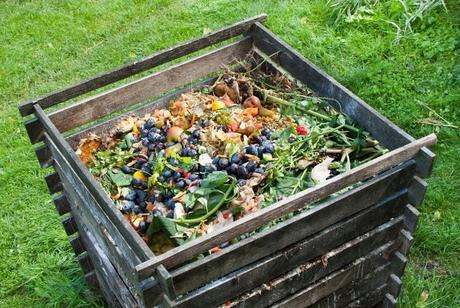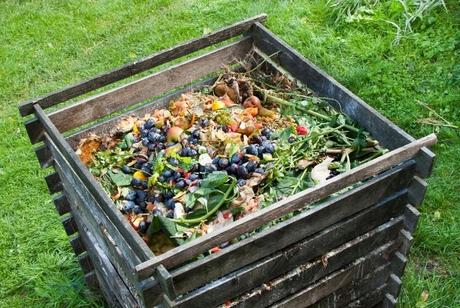We all know what compost means – it’s nothing but an organic matter that decomposes through composting. It results in the recycling of waste materials and produces a soil component. Composting not only reduces trash in landfills but improves your lawn at home. It’s one of the most effective methods to reduce over-the-top landfilling.

Composting is a great way to produce rich soil fertilizers that you can implement for a healthy and beautiful garden. The bigger the produce of the compost, the healthier your garden will be. Composting is a responsible step that you can take to make a more significant and long-lasting impact on the environment.
Let’s look at the two best methods of composting at home, which is highly effective and don’t cost much:
Compost Pile v/s Compost Bin
Both compost pile and compost bin are two of the most effective composting methods you can opt for at home. Choosing between the two can be quite tricky as both have some advantages and disadvantages as compared to the other one.
For setting up either of these choices, you need to have at least 3 square feet of outdoor space.
A compost bin is a right choice if you’re apprehensive about the way your compost pile will smell or look. The trick for indulging in the correct way of composting is to use equal amounts of “green” and “brown” waste to keep the compost healthy.
Green waste includes vegetables or fruits, while brown waste consists of newspapers, wood shavings, etc. Moisture and oxygen are crucial for your compost. Make sure to sprinkle water on your compost now and then to keep it most. If the compost mixture is correct, it will smell like soil.
You can choose either of the two methods, but what makes your compost good enough is if you correctly follow all the steps.
What’s a Compost Bin?
A compost bin is a container that you can use to put in dry or wet (organic) waste to turn into compost over time. Compost bins work to hasten the process of decomposition through adequate aeration and moisture retention. Ideal conditions such as a proper combination of air and moisture enable the aerobic bacteria to transform the organic materials into compost.
Depending on the type of bin you select, the process of composting will vary. Compost bins can be store-bought or home-made.
Some materials for making compost bins at home can be:
- Plastic
- Ceramic
- Stone
- Wood
- Wire Fencing
Well designed aerobic compost bins promote an environment in which the aerobic bacteria thrive, and that’s what you want. Well maintained compost bins don’t release a stinky odor. Anaerobic bins, on the other hand, produce offensive odor, which can last for days.
Pros of Compost Bins
- A compost bin can speed up the process of decomposition.
- If proper conditions required for the process persist, you’ll have access to untarnished fertilizers that you can use at home or sell.
- These compost bins have the advantage of making it hard for the rats to get to your compost.
- Some compost bins can be closed tighter as compared to other containers, which makes them easy to clean.
- A compost bin keeps the organic waste compartmentalized and out of sight.
- Should you choose to purchase them, they’re quite affordable.
- You can quickly build your compost bin at home with simple materials like wood, stone, tree branches, etc.
- Some new compost bins can mix the contents on their own, saving your time and energy.
- Few of the bins have two compartments so that you can use one to finish a load of compost while you load the other chamber.
Cons of Compost Bins
- If the compost bin isn’t tightly closed, it may get infested with rodents, rats in particular.
- A few high-end store-bought bins are maintenance intensive.
- All the bins may not be weather-proof.
- Some bins don’t have the provision of drainage holes to segregate the liquid formed during decomposition.
- Anaerobic composting may release a foul odor.
- If the bin isn’t able to maintain the required conditions for proper composting, your efforts may go to waste.
What’s a Compost Pile?
A compost pile is a heap of organic waste and vegetation that are decaying to become compost. The best site for your compost pile is to place it on a level and well-drained spot, which will ensure that the excess water from the collection drains away quickly.
This process also helps the worms to get in quickly and do their work. The tiger worm (Eisenia fetida) is one of the most efficient worms that eats its way through organic waste. Your compost pile requires the correct materials like vegetable cuttings, tea bags, fruits, etc. These are fast to breakdown and provide the required oxygen content.
You can also use cardboard boxes and leaves. These take time to break down but provide the necessary carbon content and form air pockets in the mixture. You should refrain from adding stuff like meat or dairy products, diseased plants, and animal litter to your compost pile as they will lead to unpleasant odors.
Pros of Compost Pile
- Adding a compost activator to the pile will help your garden waste turn into rich compost in lesser time.
- Turning your compost heap helps to mix the waste, which leads to faster composting.
- The layering of materials from the base to the top is the best way to come up with an efficient compost pile.
- You can start with a layer of dried leaves at the bottom, food waste in the center with a thick layer of brown material, and kitchen scraps at the top.
- Cutting things up can accelerate the process of decomposition.
- Through a compost pile, you can compost much more material than in a compost bin.
- The process of composting through a pile results in black and fiber-rich soil you can use in your garden.
- This method of composting through heaps results in better and superior products in large amounts.
Cons of Compost Pile
- Composting through a compost pile is labor-intensive as it requires the alternate turning of the materials.
- If done in suburban or crowded areas, the foul odor can be an issue to your neighbors.
- This method takes weeks to give results and is time-consuming.
- If you put in the same ingredients to the compost pile, it won’t have the diversity of nutrients and good bacteria that makes the compost valuable.
- Brown waste is essential for this method, and a lack of it can halt the process.
Which is Better – Compost Bin or Compost Pile?
When choosing a composting method for your yard or garden, it’s necessary to understand all the conditions and factors associated with composting.
1. Space
Both methods take up almost the same amount of space.
Compost bins are not meant to be moved but can be placed anywhere outside your house.
A compost pile, on the other hand, works better if you have a big outdoor space with fewer occupants nearby as it releases the foul smell.
2. Capacity
Compost piles have a larger capacity than compost bins.
Some compost piles make use of compost bins, which makes the capacity similar to that of a regular container.
Compost bins, even at full capacity, are easy to turn.
Compost pile requires a pitchfork to turn the contents alternately for better results.
3. Functionality & Composting Time
Compost bins take less time to give results.
Compost piles take about a month or so to complete the process of decomposition.
Compost bins are easier to clean than compost piles.
Compost bins make use of aerobic and anaerobic bacteria to hasten the process, whereas compost piles are entirely dependent on the worms to eat through the organic matter.
4. Odor Control
Compost bins, if compactly closed, will not release any odor.
The most significant disadvantage of a compost pile is the bad odor that it produces due to being entirely open in the air.
Conclusion
Carefully considering the factors mentioned above, the methods of composting, and the time consumption, it’s quite clear that compost bins are the better choice.
They are easy to use, affordable, decently sized, and portable. Even though the bins can contain small amounts of organic waste, the outcome is efficient. These compost bins yield fertile soil components at a faster rate and better quality.
Now it’s relatively easy for you to select your preferred method for composting.


